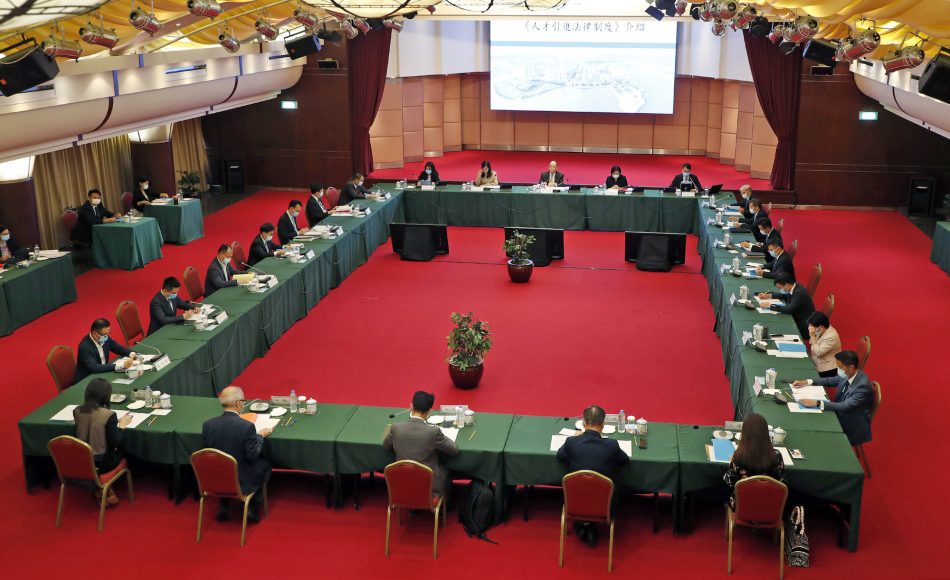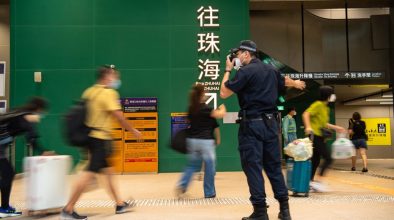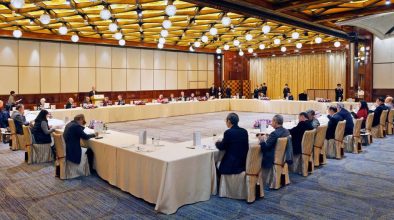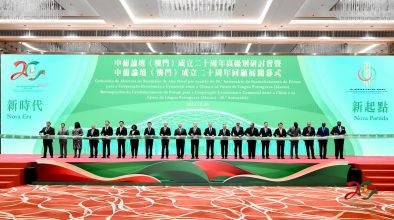Economic diversification is incredibly important for Macao, which has long relied on a single industry – gaming – to fuel its economy. To get there, the government is throwing itself into talent acquisition schemes that will help plug the city’s skills shortage.
In July, Macao’s Talent Development Committee unveiled its latest strategy: four recruitment task forces, one for each of the city’s emerging industries. Namely, big health, high-tech, modern finance, and MICE (meetings, incentives, conferences, and exhibitions – including sports and culture).
The aim is to import around 1,000 of the world’s best and brightest. They, in turn, will drive progress, innovation, and change.
Chief Executive Ho Iat Seng chairs the Talents Development Committee. In a recent plenary session, he observed that the global market for innovative hires with international outlooks was fiercely competitive. Ho also noted that the territory’s ability to attract such talent was key to staying competitive in the region.
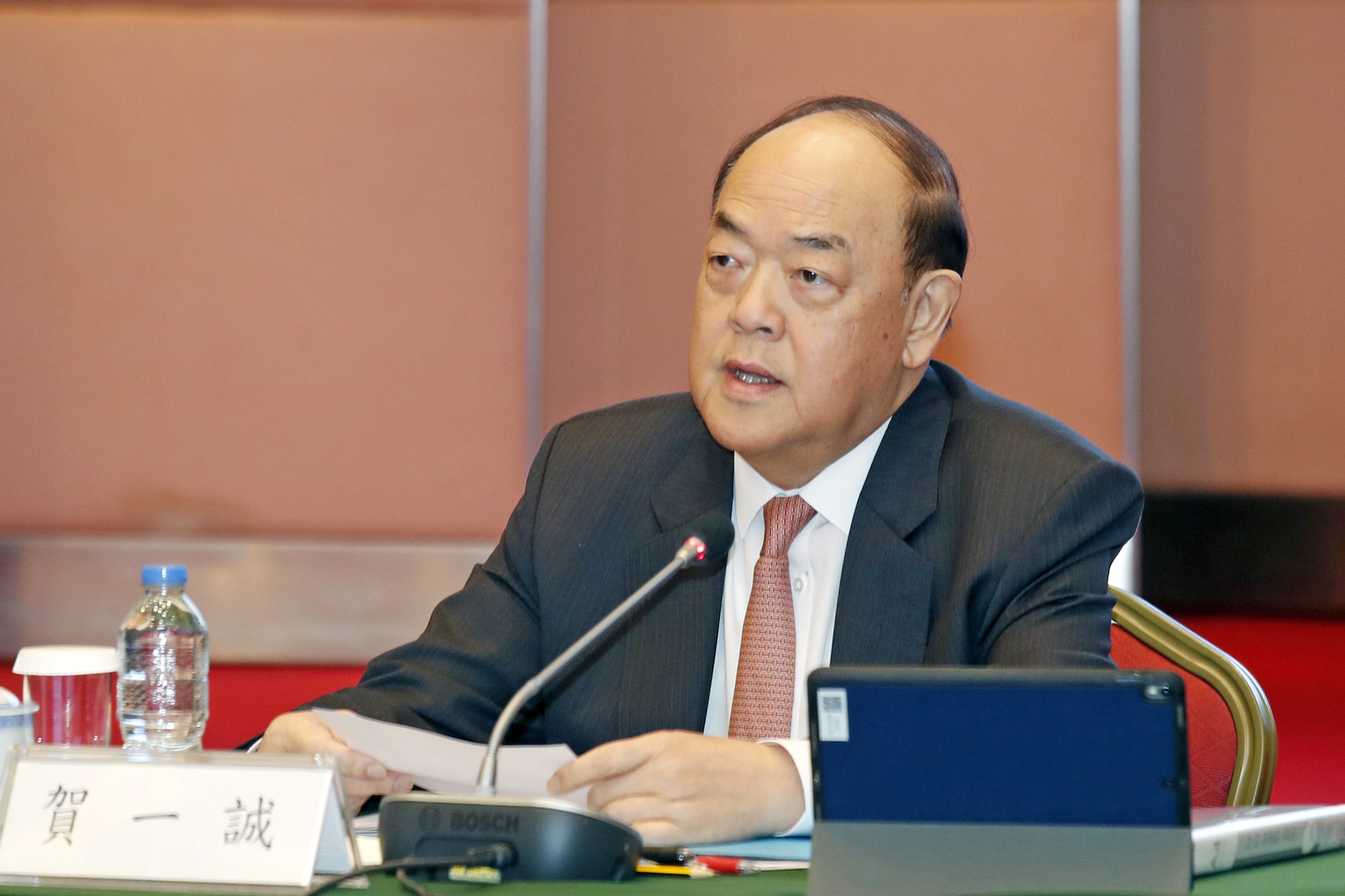
In relation to the “One Country, Two Systems” principle, Ho pointed out Macao’s responsibility to coordinate its regional planning in accordance with its position of “One Centre, One Platform and One Base” – meaning, its unique position as an economic and trade cooperation platform between China and Portuguese-speaking countries, a world centre for tourism and leisure as well as a cultural exchange and cooperation base.
Finally, the chief executive said that his government would also strengthen the training of local qualified staff – involving them in the development of priority industries, as well as foreign talent.
The committee’s general secretary, Chao Chong Hang, outlined some specifics of the talent recruitment scheme. Laws would be changed in order to facilitate a new immigration pathway for qualified professionals from outside Macao, for example.
Chao said that information about the scheme’s candidates – their academic qualifications, ages, and industry backgrounds – would be made publicly available. He stressed that 1,000 was a ballpark figure subject to adjustment, and that more precise, per industry quotas would be announced in due time.
The gist of the committee’s session was this: Macao’s government understands that attracting and nurturing talent is essential for economic growth and a prosperous society. It’s prepared to invest in people who will help propel Macao forward.
Harald Brüning
Journalist and Director of The Macau Post Daily
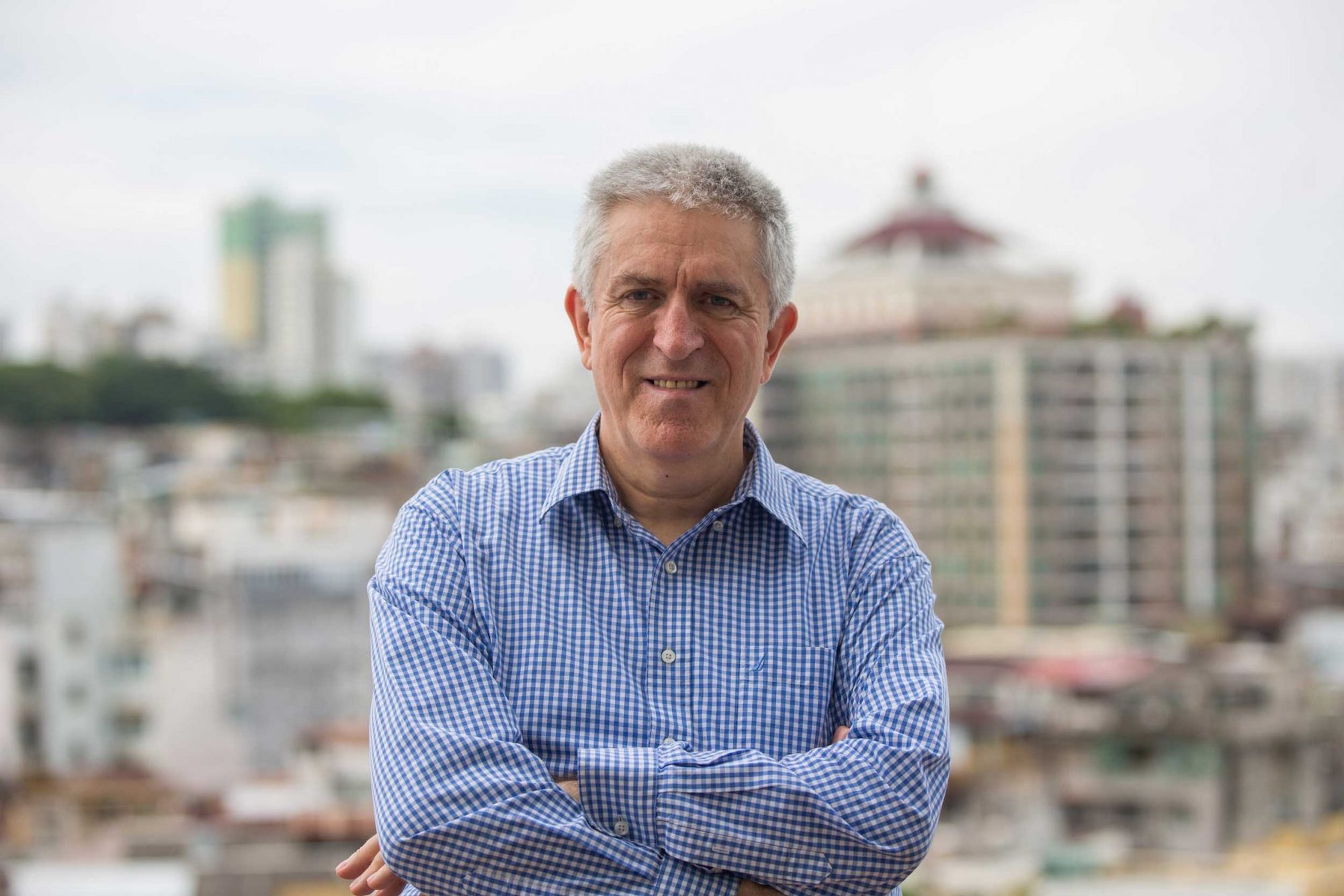
When the local government announced its recent raft of concrete measures to regulate the import of top talent, I couldn’t help but remember Macao of the 1980s. Back then, the city exported its talent. People in Hong Kong called it “the sleepy enclave” – for the simple reason that the local labour market couldn’t offer enough suitable jobs for everyone.
I estimate that, before the 1990s, thousands of Macao’s brightest sought jobs in Hong Kong and overseas. Not only university graduates, but anyone lucky enough to possess a natural aptitude or skill (the traditional meaning of ‘talent’) – including artists – sought their fortunes elsewhere.
That dire employment situation only began to improve with the liberalisation of the gaming industry, some two decades ago. That gave tourism, the retail sector, the property market, and many other economic sectors a massive development boost. Concurrently, the local tertiary education sector also started to develop by leaps and bounds.
Changes came about so quickly that – virtually overnight – there was not enough local talent available to meet that surging demand for high-quality staff.
And that’s where we are, still. The challenge will be striking the right balance between the supply of local talent and the import of non-local talent. As a newspaper publisher, I know from my own experience how difficult it is to hire qualified local staff.
I would like to see some of the local talents who went overseas to return to their place of birth to contribute to its development.
Of course, this is not just a matter of supply and demand in the labour market – but also one of personal preference, and we need to respect that. Some of our home-grown talent love the idea of staying in Macao; others want to try their luck further afield. Hong Kong, the Greater Bay area, and beyond.
Macao’s “1+4” development strategy won’t succeed without the import of top talents from all over the world. But this should never come to the detriment of local talents – a difficult balancing act indeed. One that, I am sure, the government is well aware of.
Huang Jingbo
Director, United Nations University Institute in Macau
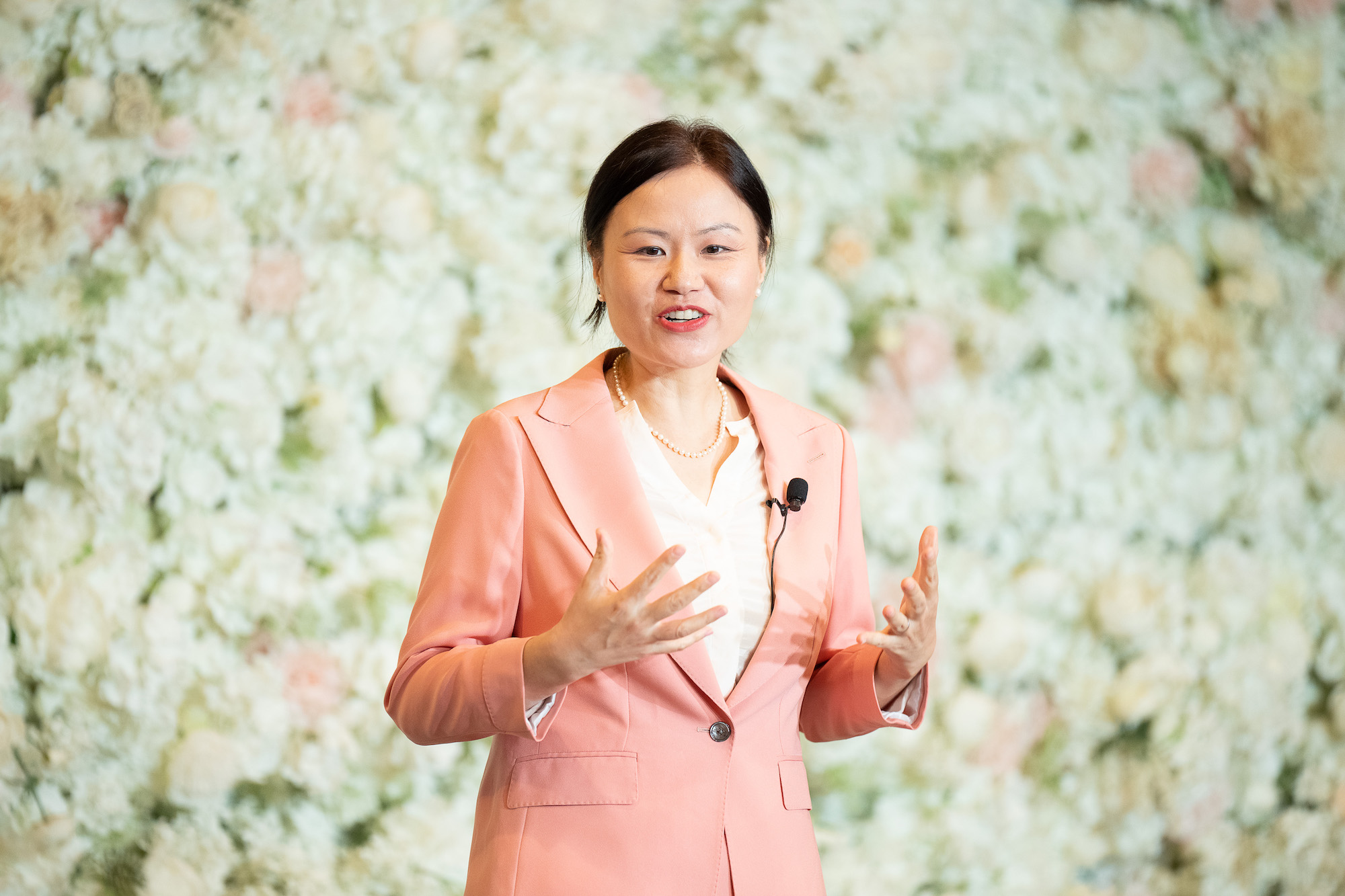
With the new policies in place, it will be possible to lure talents from abroad. But that doesn’t mean it’s any less important to cultivate local talents. It is they who are the key to Macao’s sustainable economic development.
In the short term, imported talent can help develop Macao economic diversification. We still need local elites and talent in the long run. This has been the experience of many places in similar situations around the world.
Wong Seng Fat
Assistant Professor, Faculty of Science and Technology, University of Macau
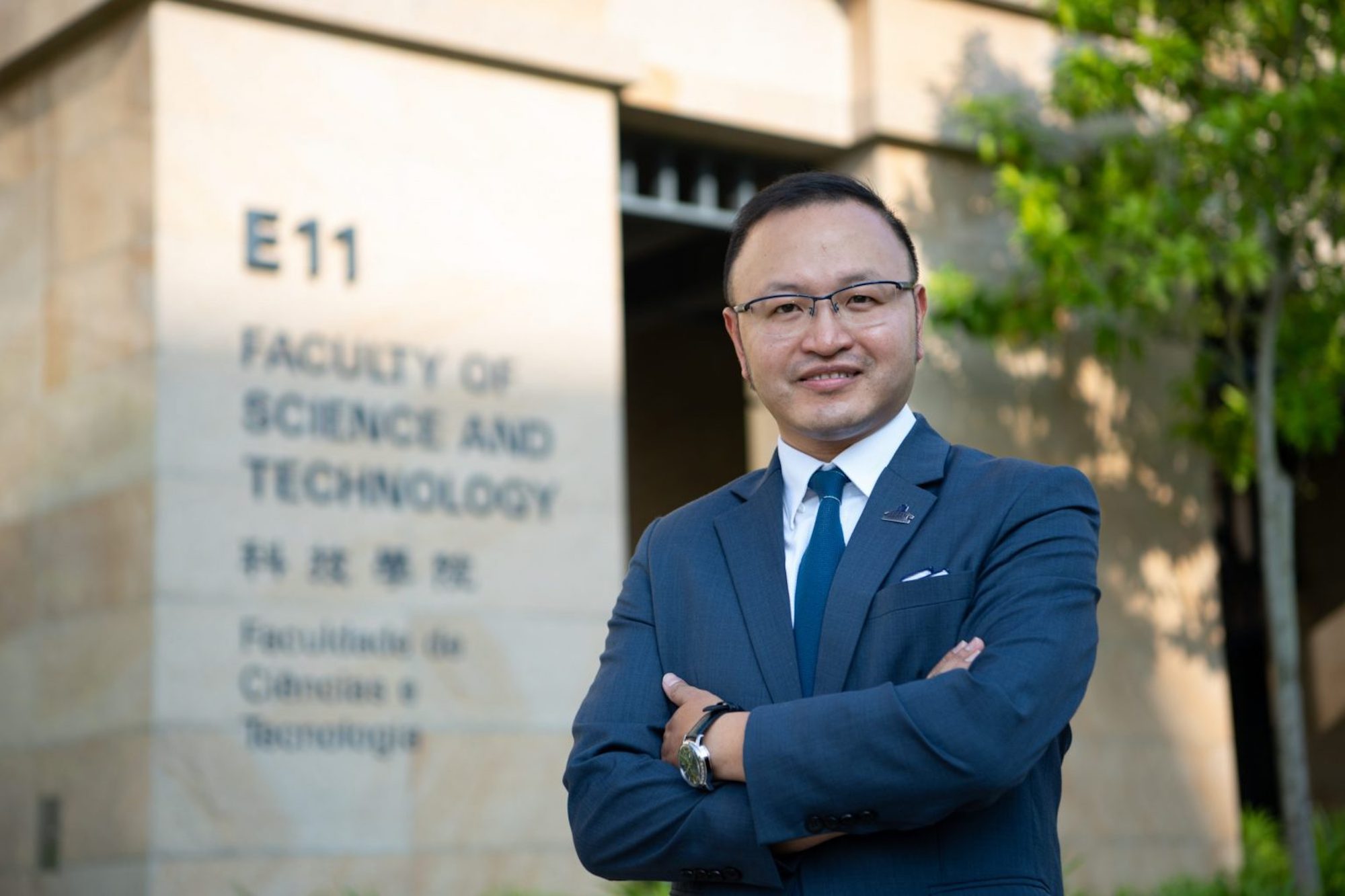
Macao’s new talent programme targets four key industries. I will go through each. Firstly, modern finance. This industry lacks interdisciplinary talent. It needs people with both IT skills and financial knowledge – something scarce in Macao’s current talent pool.
Secondly, high-tech. Macao needs this industry in place as soon as possible. To get there, we need to attract experienced talent. Anyone with such skills already in town; we must encourage them to stay. People with backgrounds in high-level scientific research are particularly valuable, because they’re the ones who’ll develop the high-tech industrial products of Macao’s future.
Regarding the MICE, culture and sports industry – our foundations are solid. We’ve been developing in this area for a relatively long time.
However, in order to develop innovative new projects within this sector, we do need to import the relevant professionals. Especially around sports. One way forward could be to look at identifying sports with Chinese or Macao characteristics, to develop into attractions for foreign tourists.
On the subject of big health, we need interdisciplinary talent with medical expertise and knowledge of data analysis. There is a lot of development already happening in this field, with the new Cotai healthcare complex expected to open later this year – as well as further developments in Hengqin.
Carlos Cid Álvares
CEO of Banco Nacional Ultramarino (BNU) and President of the Macau Luso-Chinese Chamber of Commerce and Industry
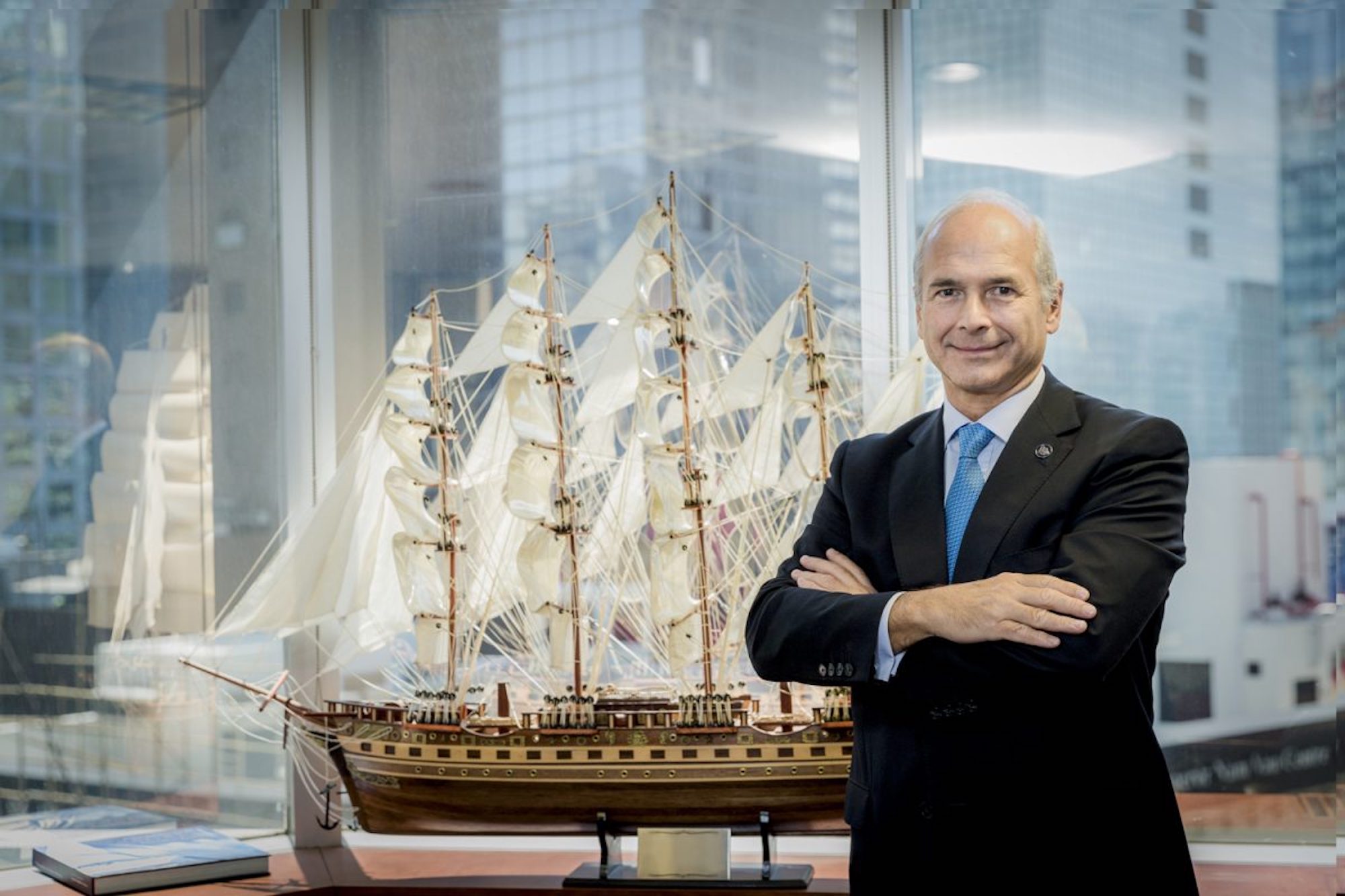
Macao has it all. It has established a talent import scheme to facilitate the entry of foreign professionals and skilled workers. It has simplified the work permit process for them. Macao has set up a plan to nurture local talent and enhance their skills, and offers entrepreneurship support incentives for foreigners business people.
These policies are mostly focused on an economic diversification strategy; to attract and retain skilled professionals in Macao’s four emerging sectors. The aim is to promote innovation and economic growth, enhancing Macao’s competitiveness in the global market.
But maybe the ability to attract CEOs and CFOs of multinational companies should also be the target. These companies diversify the economy and tax collection. They generate new jobs without competing with local companies. They can support local real estate and small businesses. What they need are places with good schools and universities for their kids, something Macau can easily provide.
